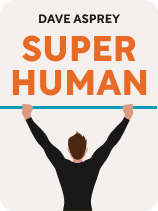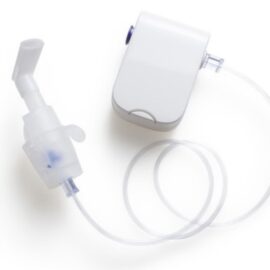

This article is an excerpt from the Shortform book guide to "Super Human" by Dave Asprey. Shortform has the world's best summaries and analyses of books you should be reading.
Like this article? Sign up for a free trial here.
What are the signs of hormonal imbalances? What are the effects on your health? How can you get your hormones in balance?
Hormonal imbalances in your body can cause mitochondrial inefficiency. That’s a big deal. Mitochondria help you maintain your overall health by reducing the damaged and dysfunctional cells mitochondria must tackle.
Read more to learn about the problem with hormonal imbalances and how to balance your hormones naturally for optimum health.
The Problem With Hormonal Imbalances
As you age, your body slows down its production of certain hormones such as testosterone and estrogen, resulting in an imbalance that can cause many of the undesirable symptoms we associate with old age. These symptoms include mood swings, weight gain, poor sleeping patterns, low fertility levels, and sexual dysfunction.
(Shortform note: According to research, the body produces over 50 different hormones, all of which contribute to essential bodily processes. While age does decrease the production of some of these hormones, it also increases the production of others. In addition to testosterone and estrogen, hormones that decrease with age include aldosterone, calcitonin, growth hormone, renin, and prolactin. The hormones that increase with age include follicle-stimulating hormone, luteinizing hormone, norepinephrine, and parathyroid hormone. People can experience several different symptoms depending on what type of hormonal imbalance they have.)
Asprey claims that old age isn’t the only cause of hormonal imbalances. Various other factors can disrupt your hormones, such as a lack of sleep or nutrition, a sedentary lifestyle, using personal care products made with hormone-disrupting chemicals, and taking prescription medications or hormonal birth control.
(Shortform note: According to research, there are many possible causes of hormonal imbalances. In addition to Asprey’s list, these causes include high stress levels; damage to the endocrine gland; eating disorders; tumors and/or chemotherapy treatments; an underactive or overactive thyroid; and autoimmune diseases such as Hashimoto’s, Graves’ diabetes, or Addison’s.)
How to Balance Your Hormones Naturally
Asprey suggests four methods for how to balance your hormones naturally:
1) Practice high-intensity exercises a few times a week.
(Shortform note: While high-intensity exercise can boost levels of muscle-maintaining hormones (such as testosterone), it can also lead to elevated levels of stress hormones (such as cortisol). Medical professionals suggest that you can benefit from high-intensity exercises and curb your stress hormone levels by taking time to recover in between workout sessions.)
2) Replace chemical-laden products with natural ones.
(Shortform note: It’s challenging to know what commercial products to avoid since they use numerous variants of and names for hormone-disrupting chemicals. Instead of trying to come up with a list of the thousands of ingredients and names to look out for, simply try to avoid any products containing three main hormone disruptors: formaldehyde, bisphenol A (BPA), and phthalates. Additionally, health practitioners recommend that you avoid any products that include “fragrance” or “parfum” in their list of ingredients.)
3) Check the effects of any prescription medications.
(Shortform note: According to hormone specialists, there are three types of prescription medications that are notorious for disrupting hormones: analgesics (for treating pain), steroids (for treating inflammation), and isotretinoin (for treating acne).)
4) Find replacements for hormonal birth control.
(Shortform note: There are a variety of non-hormonal contraceptive options available, including condoms, sponges, cervical caps, diaphragms, spermicides, and non-hormonal IUDs. Additionally, surgical procedures include vasectomies for people with penises and tubal ligations or occlusions for people with vaginas.)
How to Rebalance Hormones if Lifestyle Changes Don’t Work
If changing your lifestyle doesn’t help to rebalance your hormones, Asprey recommends undertaking bioidentical hormone replacement therapy (BHRT). Bioidentical hormones are chemically identical to those your body naturally produces—which makes it easier for your body to assimilate them into your hormonal makeup. These hormones can be administered in various ways—through injections, by taking pills, or by putting on patches or creams.
(Shortform note: Bioidentical hormones are marketed as “natural,” and therefore safer and more effective than hormones used in traditional hormone therapy. However, though bioidentical hormones originate from natural sources, such as plants or animals, they require heavy processing—meaning that by the time the hormones are ready for treatment, they’re no longer natural. Further, according to the FDA and several medical specialty groups, there isn’t any evidence that proves bioidentical hormones are safer or more effective than hormones used in traditional hormonal therapy.)

———End of Preview———
Like what you just read? Read the rest of the world's best book summary and analysis of Dave Asprey's "Super Human" at Shortform.
Here's what you'll find in our full Super Human summary:
- How to grow older without the negative side effects
- A look into the advancements of anti-aging science
- Why a healthy future starts with making changes now






